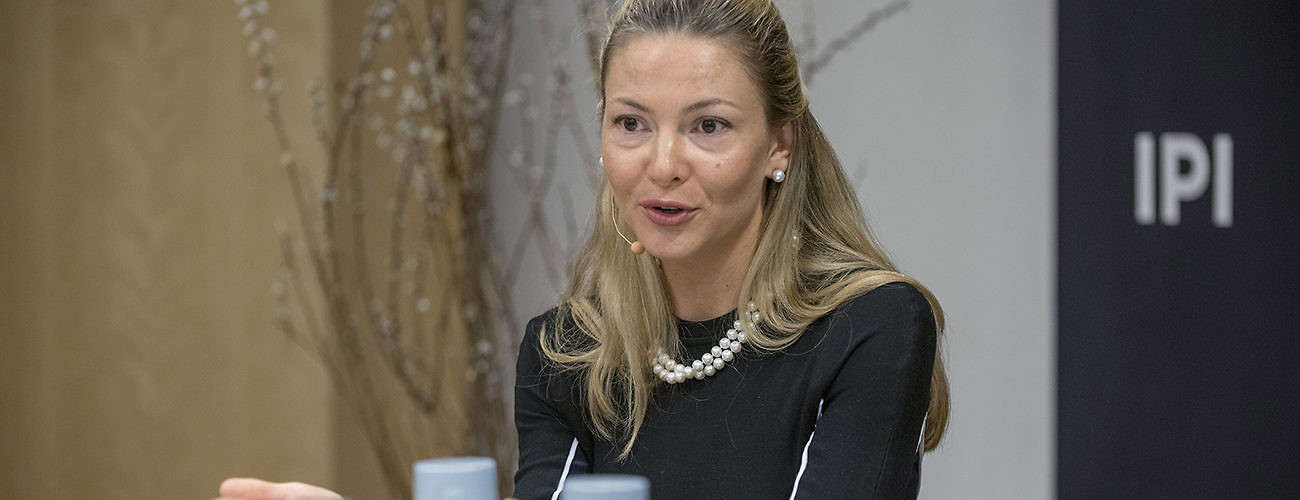Agnia Grigas, author of Beyond Crimea: The New Russian Empire, outlined to an IPI audience a strategy that she said Russia has adopted to pursue its territorial ambitions and try to regain the stature it lost with the collapse of the Soviet empire.
The strategy, which she labeled “compatriot protection,” posits that Moscow has the right, and even the responsibility, to intrude in neighboring countries like the former Soviet republics of Ukraine and Georgia to represent the rights of Russian speakers and ethnic Russians left behind when the USSR fell three decades ago.
Speaking at this Distinguished Author Series event on June 15, 2016, Grigas estimated that there were 35 million such “compatriots” in the former Soviet space and that it was Moscow’s contention that they were being discriminated against as minorities and therefore needed Russia’s “protection.”
She defined as compatriots people with an “ethnic, religious, spiritual, or historical relationship” with Russia.
Russia’s compatriot policy starts with building soft power influence through “cultural support as a tool of foreign policy.” Coupled with “passportization,” or the systematic distribution of Russian citizenship to compatriots abroad, she said Russia’s plan amounts to “modern hybrid warfare.”
She said the project was an attempt at “re-imperialization” of the Russian empire. “Russia’s re-imperialization policies with compatriots aim to regain influence, if not territory,” she said. She added that this kind of territorial ambition had its roots in Russian history, but that President Vladimir Putin had “perfected” it.
As cases in point, she cited Russia’s annexation of Crimea, and its promotion of separatist movements in Eastern Ukraine, Moldova and Georgia. Other countries in an expansion-minded Russia’s sights include Estonia, Lithuania, Latvia, Kazakhstan, Uzbekistan and Turkmenistan, she said.
Asked how Russia viewed the possibility of Britain leaving the European Union—the so-called “Brexit” —she said Russia would be happy with Brexit because, “a divided Europe is a weaker Europe.” She said an effort to try to “divide the European countries,” is already underway, and Brexit would make some continental powers “unable to resist Russia’s policies.”
Asked whether she agreed with those who say the West expanded NATO and the EU without enough regard for Russia’s sensitivities about encroachment on its territory, she said, long-term it is “unfair to expect that Baltic states should not be admitted to the EU or NATO because it would hurt Russia’s feelings.”
Warren Hoge, IPI Advisor for External Relations, moderated the conversation.








